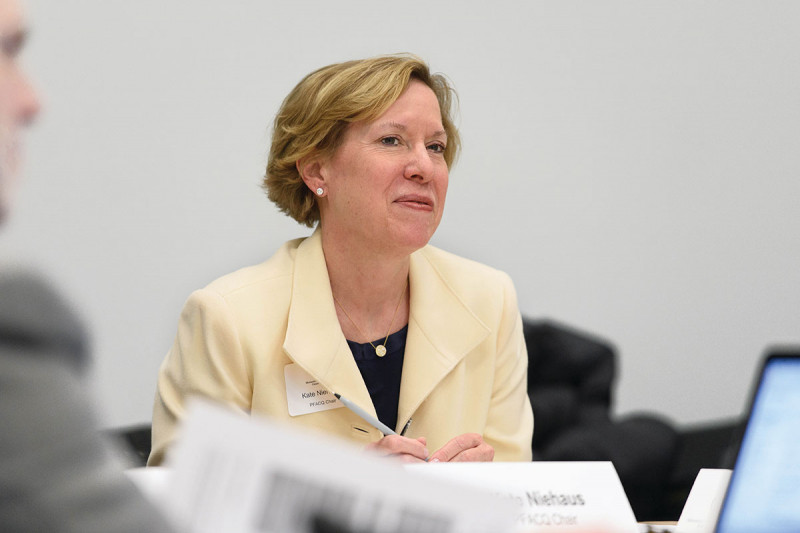
We have had the unique opportunity to provide the patient and family voice for key MSK projects that serve an array of institutional needs. Below is a sampling of our accomplishments:
Served as sounding board for telemedicine: Provided actionable feedback on the telemedicine experience, platform, and best practices, many of which were incorporated in the rollout of telemedicine visits and the updated telemedicine platform.
Advocated for shared notes and radiology scan results: Promoted and participated in the development of a platform to share physician notes with patients. We also spoke to hospital leadership about the anxiety of awaiting results from imaging scans, the variability of the waiting period, and its impact on the patient’s emotional well-being. In response, all imaging results are now available on the portal within two business days after being read by a radiologist.
Responded to COVID-19 pandemic: We worked with MSK’s Marketing and Communication department to enhance patient-centered messaging and ensure that communication to patients about COVID-19 was empathic and regularly disseminated.
Provided essential feedback for the launch of a patient value tab: PFACQ was an instrumental partner in the development of a “patient values tab,” a new process by which nurses ask patients at the beginning of their care to talk about their needs and goals. That information is added to the patient’s emergency medical record and can help guide treatment decisions.
Represented on more than 20 MSK committees: Much of the work of MSK is done through committees made up of clinicians, scientists, and administrators. Since the formation of PFACQ, our members have played a meaningful role on these committees to represent the patient and family perspective.
Formed core of Integrative Medicine Advisory Group: The group serves as a sounding board for the Integrative Medicine Service and aims to educate patients and families about MSK’s offerings. In addition, members are part of a team that studies patient-centered outcomes.
Optimized MyMSK, MSK’s first patient portal: We worked closely with the MyMSK team to enhance the online experience for new patients and their family members.
Participated in design innovation workshops: We joined the MSK Strategy & Innovation group in design workshops to envision the optimal caregiver experience. We also collaborate with the group to find ways to better manage chemotherapy side effects in order to limit inpatient admissions.
Judged Quality Improvement Fair and selected patient-centered grants: We participate in evaluating grant applications submitted by young investigators to MSK’s Division of Quality and Safety.
Developed a video series for new patients and their family members: We developed a short introductory video for new MSK patients to provide tips, information, and reassurance. We also created a video resource for family members on how to best prepare to take on the role of a caregiver.
Participated in all serious event analyses: hese multidisciplinary meetings are designed to dissect unfortunate events or “near misses” and determine a course of action to avoid similar errors in the future.
Assisted with launch of supportive care initiative: We were an instrumental partner in the development of a program and process that addresses goals of supportive care.
Representing PFACQ and MSK: PFACQ members present at various conferences, such as ASCO Quality Symposium and Society for Participatory Medicine. We also have leadership roles in Patient and Family Advisory Councils, the Comprehensive Cancer Center Consortium for Quality Improvement PFAC workgroup, and the Alliance of Dedicated Cancer Centers Quality Committee.